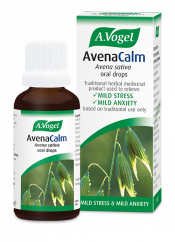How to identify your stress triggers
Short-term or acute stress is a normal part of our life and is actually beneficial for our health, however, when we experience stress long-term (also known as chronic stress) a number of health problems can crop up as a result. Identifying what stresses you out in the first place will help you to manage, cope and understand your stress better in the future. Below I’ve listed a few of the main causes of stress to help you identify what yours could be.
Work-related stress

Work-related stressors include:
- Exams and work deadlines
- Losing your job
- Long-term unemployment
- High demand and high levels of responsibility
- Retiring
Whether it’s too heavy a workload, uncooperative colleagues or a high-intensity working environment, stress in the workplace is one of the most common triggers of stress. In fact, in the UK alone in 2018/19, 602,000 workers experienced work-related stress, depression or anxiety – and those are just the figures that we know about, many who are coping with work-triggered stress suffer in silence.1
For some more information on dealing with work-related stress check out my blog for the ‘Dos and don’ts of tackling work-related stress’ and read my top tips below.
Tips to minimise work-related stress
1. Prepare in advance to reduce time procrastinating and organise your work wherever possible, invest in planners to better manage your time.
2. Always take your designated breaks and use them as a time to separate yourself from your work – this is a good opportunity to go for a walk and get some fresh air or to take some time to read a book, meditate or listen to some music.
3. Delegate some of your workload if you really find yourself struggling to cope and are feeling overwhelmed.
4. Talk things through with a superior – let them know your situation and how you are feeling and what they recommend to remedy the situation.
5. Although not always a practical option for some people, a change of career can help to eradicate work-related stress. Often, particularly if we’ve been in the same job for some time, we can feel stuck , scared or unwilling to change our career path. However this can be a liberating way to relieve work-related stress (as well as potentially removing any financial stress caused by work too).
Financial stress

Financial stressors include:
- Worries about having enough money to get by comfortably
- Debt
- Unexpected large bills
Often work-related stress and financial stress are linked as your job is usually your main source of revenue. If you feel like you’re struggling to make ends meet then it is possible that you will experience stress as a result of your finances. Although it can feel like you’re alone when coping with financial stress, it’s important to remember that you’re not and there are many people who go through similar financial hardships.
Tips to minimise the pressures of financial stress
1. Tackle it head on! When we are dealing with stress as a result of financial problems, looking at your out-goings and incomings can cause a lot of frustration, anxiety and, in most cases, fear. However, burying your head in the sand sadly won’t help you to brainstorm and figure out a solution. Take time to look at the numbers so that you have a better understanding of why you are currently in this position and identify some potential cuts you could make.
2. Budget appropriately – planning a monthly budget can be extremely beneficial for helping you to manage your money better. This can be tricky to start with so I’d recommend using a helpful budget planner which is available online through as the likes of Nationwide’s free budget calculator.
3. Ask for help – if you feel like you can’t figure your way through the numbers help is always at hand. Asking friends or family to sit down and look at ways you can make some smart savings can help. Alternatively, you can investigate what advice and free resources are available to you at your local bank.
Health-related stress

Health-related stressors include:
- Illness or injury
- Pregnancy
- Coping with the loss of a loved one
- Mental health conditions such as depression, low mood and anxiety
- Long-term or chronic health problems
Sadly, because stress takes such a big emotional and physical toll on your body, particularly if we experience stress long-term, it can often make existing health conditions worse. Stress can aggravate numerous areas of our health and cause ailments such as constipation, a weakened immune system, sore muscles and joints, diarrhoea, depression, low mood and anxiety to become more problematic.
The good news is there are a number of ways you can boost both your emotional and physical health when it comes to stress. For more in-depth information on how stress can wreak havoc on your immune system check out my blog 'Why stress is the enemy of your immune system'.
Tips for tackling health-related stress
1. Exercising regularly can help to support your circulation and prevent heart-related disease. It also provides a boost to your immune system and mood. Exercise is a known stress reliever, helping to burn off excess amounts of our stress hormones and releasing feel-good endorphins.
2. Up your fruit and veg. Your diet will have a huge impact on the role and function of your immune system so, if you find that you’re regularly falling ill, it could be worth having a look at this area. Fruit and vegetables are abundant in essential vitamins and minerals such as vitamin C which is most commonly found in citrus fruits.
3. Take time out if you need to. When we aren’t feeling our best it is never a good idea to force ourselves to go to work or to run around after the kids or elderly parents who need some help. If we do this we may end up experiencing emotional burnout out and we won’t feel much better for it - in fact, it can even increase the severity and longevity of health ailments!
4. Stress can leech our body of important minerals such as zinc, which plays an important role in our immune system functioning, and magnesium, which is responsible for mood regulation and for preventing fatigue. Consider getting checked for possible nutritional deficiencies and up your mineral intake using Balance Mineral Drink.
My Top Tip: This Balance Mineral Drink has a lovely, delicate strawberry flavour and can easily be mixed into smoothies or mingled with water to create a great, fatigue-fighting drink. This Balance Mineral Drink has a lovely, delicate strawberry flavour and can easily be mixed into smoothies or mingled with water to create a great, fatigue-fighting drink.
|
Relationship and social stress

Relationships and social stressors include:
- Public speaking
- Dating
- Social interactions with groups
- Getting married
- Getting divorced
- Raising young children or having a baby
- Being a carer for a friend or relative who needs extra support
Throughout our life we come across all sorts of people and sometimes the relationships we develop can cause us some stress. From colleagues to friends to family, not all of our relationships are smooth sailing – particularly if we are in a carer role or the person whom the relationship is with needs a bit of extra support.
If we are stressed for another reason, such as work, finances or our health, this can often spill over meaning that we bring our stress home with us which can then affect our close relationships too. In this situation we can react more aggressively, become more irritable and struggle to remain patient with the relationships around us.
Tips to cope with relationship and social stress:
1. Communication is key! When we’re stressed as a result of a relationship it’s important to communicate to the other person how you’re feeling – they might not even be aware!
2. If you need some space, take it. If you’re in a position where you are the rock of support for another person it can become difficult to recognise and acknowledge your own needs and these should never be ignored!
3. Counselling is another option to consider as this will give you an impartial outside perspective on your situation and the counsellor will be able to provide you with support and advice on how to manage the situation.
Emotional stress

Emotional stressors or internal stressors include:
- Fear
- Anxiety
- Lack of self-esteem and self-confidence
- The need to control events in your life
I’ve already touched a little bit on how problems with your emotional health can serve as a trigger for stress but here let’s go into a little more detail. As I discuss in my blog ‘Anxiety and stress – is there a difference?’ many of the symptoms of stress and anxiety overlap meaning that it can be tricky to know what the difference is between the two. When we suffer from stress, the likelihood of developing anxiety, low mood and depression increases which can make it even harder to dig ourselves out of these negative feelings.
Sadly, in comparison to our physical health, our mental health is often overlooked, ignored or neglected with many people experiencing these conditions feeling uncomfortable or scared to express them. In reality, though, it is just as important to look after our mental health as we do our physical health! As with our physical health, though, we can take some easy steps towards looking after our mental wellbeing. Some of these changes are as simple as taking more time out to relax or making some mood-smart diet swaps.
Tips for managing emotional stressors
1. As I mentioned above, exercise is a top way to boost your mood because of its ability to reduce stress hormones like cortisol. Check out our Get Active section of the website for more information on how to keep active and use exercise to support your mood.
2. One of the major contributors of low mood and depression is isolation and lack of connection so make sure to make time for socialising with friends and family.
3. Take time every single day to do something that makes you happy – whether it’s going for a walk, listening to music, exercising, chatting with friends, going for a bath, drawing or gardening – the opportunities are endless and this down time will help to nurture positive thoughts and emotions.
4. If you are struggling to manage difficult emotions such as anxiety, or are going through a particularly difficult stage in life, you could try our Emotional Essence. This contains a combination of different flower essences to help life your spirits and enhance your resilience to emotional stress.
General stress
If none of the above particularly applies to you, you might be experiencing general stress with no apparent or specific cause or trigger. This usually means that many areas of our life can cause us to feel moderately stressed and often it’s the way we manage our feelings of stress that is the problem rather than the areas of our life that appear to trigger those feelings.
Change can also serve as a stress trigger – this includes positive change as well as negative change. You may think that major change such as having a baby or getting married is a cause for extreme happiness (and, indeed, in most cases it certainly is) but the major changes in your life that arise as a result can sometimes trigger stress. This happens because change is scary and involves a big leap into the unknown. Even though not all changes are bad, this can make us feel a little insecure at first before we find our feet.
For general support in times of stress herbal remedies can prove to be beneficial. I always recommend our Stress Relief Daytime tincture for relief from mild stress and anxiety. The handy liquid format means that it is readily absorbed by the body making it a quick-acting remedy.
My Top Tip: Just mix 10-20 drops with a little water to help relax your nervous system and reduce mild stress symptoms. Just mix 10-20 drops with a little water to help relax your nervous system and reduce mild stress symptoms.
|
(Published 27/04/18, updated 11/06/19)










